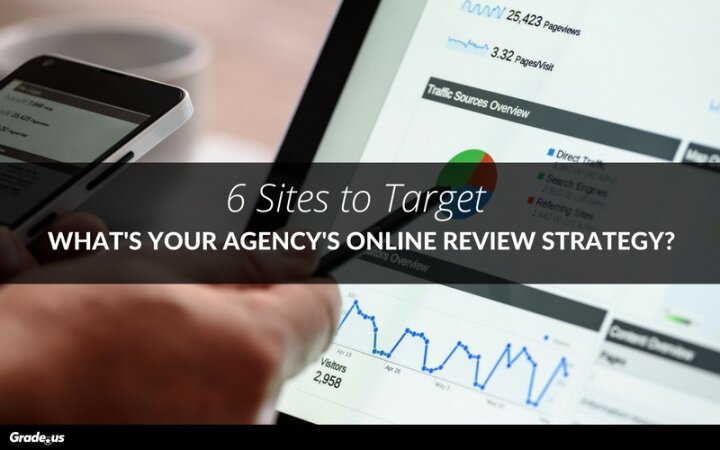- Joined
- Mar 15, 2016
- Messages
- 474
- Reaction score
- 252
Acquiring clients is the worst.
It’s a struggle for many agencies. The demands, the requirements and hoops clients push you to jump through. It’s a headache that only seems to get worse with time. It’s no surprise then that many agencies continue to depend on referrals for new business.
In the past, marketing agencies would primarily depend on networking or referrals. They’d reach out to old clients, ask for introductions, head to events. They’d slog through poorly crafted RFPs, the demands for spec work (that you know they’ll use without paying for), competing for a chance to win their business and their general I-don’t-need-you attitude.
This behavior starts with fear.
Clients are afraid they’ll make a mistake. Nervous they’ll choose the wrong agency. Terrified a mistake will cost them their business, money, or reputation. Because the last thing they want is to lose face.
It’s tedious and unlikely to change unless you have a reputation of your own.
A powerful reputation changes a client’s mindset
When clients meet you for the first time, whether it’s in person or digitally, they make snap judgments about you – your trustworthiness, reputation, ability, etc. This judgment is typically a first impression; it’s dependent on the limited information they have about you to begin with. Agencies don’t usually provide enough information on their business or services so the relationship starts off at a deficit.
The lower your credibility, the worse their behavior.
The good news is there are lots of ways to create a stellar reputation. Becoming a thought leader by writing educational and genuinely useful content. With achievements (e.g. badges like Google Verified Partners or Local Chamber of Commerce Associations). Winning awards at the local and national levels – these are all legitimate methods agencies use to boost their credibility and reputation. But there’s one hidden strategy that trumps all the others.
You guessed it, I’m talking about reviews.
Reviews from other clients boost your profile with prospects like nothing else (especially when prospects don’t have anyone to give them a referral). It’s a strategy most agencies aren’t using. Small business owners are going to review sites to find digital marketing agencies to hire.
Your existing clients, the ones who have spent their money with you, are willing to tell the world that you’ve done amazing things for them. The more specific and detailed client reviews, the easier it is to attract new clientele.
But your reviews are doomed to fail if they’re missing the right ingredients.
Let’s cover those first.
Reviews work *if* they answer the right questions
Our business clients know the game. They know the difference a stellar review can make for your agency, they want the same things from their customers. This means they’re often more willing to give you a glowing review – if you do the right things.
So what is the right thing?
Well that all depends on the kind of relationship your reputation has established. If your agency’s reputation is negative, or just as troubling, non-existent, selfish or dysfunctional clients may demand that you bend over backwards to please them. They tell themselves “You need me more than I need you”; This means they’re more likely to…
- Haggle over prices
- Push, squeeze and hammer their agency for control
- Encourage agencies to beg for their business
- Bury their agency with pointless busy work
If your agency’s reputation precedes itself via the attributes mentioned above (or is at least growing), prospects will approach you with respect and genuine interest. These customers will…
- Be open and honest about budget constraints
- Collaborate with their agency, trusting their judgment and expertise
- Avoid cattle call style RFPs, choosing to approach a limited number of agency candidates instead
- Focus their agency on the goals and objectives that matter to them
Good prospective clients ask very different questions. Which, as it turns out, are exactly the kinds of questions you’d expect a prospective client to ask; “Do you have any other clients like me? How did you help them, what were the results, etc.” Poor clients tend to ask very different questions, e.g. “the ideas I have are the ones that work best. Here’s what I want you to do…”
Client questions signal intent.
Your clients want to see amazing reviews
They’re looking for the diamond in the rough, the agency that’s going to help them achieve the results they desperately need. They may not understand what they need, but they know that the results should be focused on building their customer base and increasing their bottom line. They want to see glowing reviews from incredibly happy clients.
Here’s why that’s a problem.
When it comes to reading reviews there are two types of customers.
1. Rookies. these clients know they should look for reviews. Problem is they’re inexperienced. Do they need an SEO specialist, a PPC expert, or a content marketing strategist? They don’t know what they don’t know. Most So they start with mainstream sources like Google, Facebook, Yelp, etc.
2. Veterans. These clients are sophisticated. They know enough about the industry to pursue industry credible, industry specific reviews. They’ve most likely vetted various agencies in the past and have an understanding of the various services they need. They gravitate to sites that cater to or focus on specialty areas. Often times they think they know as much as you do.
This presents a problem though, doesn’t it? Who do you pursue? Which client do you focus on?
You focus on both.
As an agency you’re never really sure who you’ll get. If you’re looking for more lucrative clients who value your work and have a larger marketing budget, you may focus your attention on the veteran. If you’re just starting out, don’t have the portfolio you need, or you’re looking for clients you can train you may want more rookies.
Know who you want? Pursue them.
It’s still an important idea to pursue both. Why, you ask?
Because (a) you don’t know who you’ll get (b), there’s no way for you to control who comes to you (unless you reject them outright) (c) serving both gives you the opportunity to develop your agency – whether that’s educating or delivering results. A sophisticated veteran could share a positive review with a rookie to help them out and vice-versa. A rookie may realize they’re in over their heads. They search for an industry website or blog post, in hopes of getting a veteran’s recommendation.
Since most digital marketing is all about visibility, where should we start planting our flags on the digital landscape?
Read the post to find out which sites Andrew recommends targeting.
Question for everyone: Do most of your clients tend to be Rookies or Veterans based on Andrew's definitions? Which type of client is preferred by your business and why?





